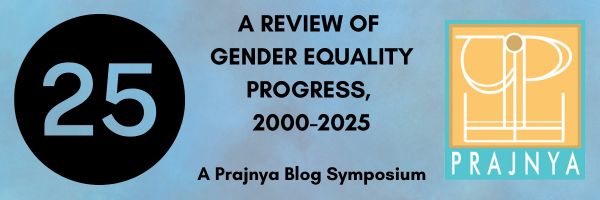 Back to Co-creating Knowledge
Back to Co-creating Knowledge
All India Disaster Mitigation Institute (ADIMI) has been working at the intersection of humanitarian action, disaster risk, and climate resilience since 1995.
AIDMI’s work started in 1994 when it was invited by local farmers in Dhandhunka taluka of coastal Gujarat, West India, many of them small and women-headed family farmers, to help address sea invasion. It was a small local humanitarian crisis that almost no one had noticed and therefore, responded to. As a local planner, I was a member of Mahiti, the local action planning team led by local women and they invited me to evaluate the impact.
In 1994, sea invasion as a disaster risk to agricultural land was rarely registered in disaster risk reduction debates and dialogues and it was a climate change impact that at the time, had no label or tag. For the affected families, it was a domestic crisis, with no loss of life, but loss of crops, livelihoods and land as an asset. The impact was greater on women and their productivity and care work. I realised that this was one case out of hundreds of annual local small crises, occurring far away from the urban economy, unnoticed by elites, whose impact is felt most by the most vulnerable-the poor, rural, working women.
Since that ignored sea invasion, AIDMI has worked not just with affected local communities in various Indian states but also in four neighbouring South Asian countries and three Southeast Asian countries. In each intervention from 2000 to 2024, we observe that the crisis impacts women and their work more negatively, and therefore their family.
Women are the most impacted by the loss and damage caused by humanitarian crises, changing climate resilience and increasing disaster risks. The most vulnerable women are invariably from minority religions or social castes or tribes; migrants across city or state; casual informal sector workers busy at home, on the street or local market; or in a small business or enterprise. Their unequal status is the key reason they suffer greater loss and damage to life, livelihoods, assets and more. But we have also seen that when given an equal chance, these affected women move beyond the loss or damage, leading their children and family out, and also their community. The Strengthening the Humanitarian System in India report of 2023 by AIDMI, Sphere India, and World Food Programme (WFP) clearly underlined that when women and their groups are given a chance, it improves, strengthens and accelerates humanitarian relief systems in India.
AIDMI’s work has shown that our global economic path, and therefore our development path, relentlessly assaults all life, in every form and gender. The economy pushes women down. Development leaves women behind. The economy and development trajectories negatively impact women and natural resources—agriculture, food, water, cattle—that they work with. Every upcoming microbial spread, leading to the hidden disaster of a health pandemic, will affect women more, and it is by building women’s antimicrobial resistance and that of their families that such assaults can be addressed and mitigated. Further, as a steering committee co-chair in 2022-24 for updating the standards for Core Humanitarian Standard, AIDMI found that though gender was globally recognized as a key variable to making humanitarian action accountable and of higher quality, a lot more was needed to be achieved in all aspects of humanitarian action worldwide.
AIDMI holds that any violence on nature is violence on women and any violence on women is violence on nature. When a tree is cut in a forest, a tribal woman suffers loss of fuel for her food to cook. When a lake is polluted, women of the villages around that lake have to walk further to fetch water for daily use for the family and cattle. This is also one of the conclusions of case study research we have done on climate, conflict, and adaptation in Asia and Africa.
Extinction is the only lens through which we should look at any gender inequality. Women will be extinct. Men will be extinct. Humanity will be extinct. And so will nature and our only planet. This was very clear in the conclusion of nine South Asia case studies by Gender Responsive Resilience and Intersectionality in Policy and Practice project under the leadership of Dr. Mahbuba Nasreen. We have now started our slide down towards the end–extinction. And only women can help us slow down, stop and reverse this process. All our humanitarian actions must be ‘greener,’ that is environment-sensitive and nature-centred and giving women a say is key to this ‘greening.’
So now what do we do? AIDMI finds and believes that direct, sustained, inclusion of women on a large scale in all activities and decisions of humanitarian crisis, disaster risk reduction, and climate resilience is a must. This progress must be made urgently. Women’s leadership is a must at all levels and in all sectors where the humanitarian crisis, disaster risk, and climate resilience intersect, as participants in “Gender-Responsive Solutions for Heat Stress: Safeguarding Women’s Livelihoods” concluded at the Asia-Pacific Ministerial Conference on Disaster Risk Reduction 2024. Feminizing and democratizing governance around relief, recovery, risk reduction and resilience is becoming more urgent every year. Women must have a direct say in all aspects of our lives, till the last woman and last life. No doubt they will offer lucid, compelling, and learning insights for action.
Mihir R. Bhatt, Director, All India Disaster Mitigation Institute.